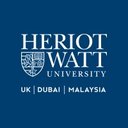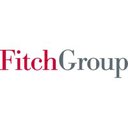Heriot-Watt University
Post-Doctoral Research Associate in Machine Learning for Autonomous Alignment
Job Description
Directorate: School of Engineering & Physical Sciences
Grade: Grade 7 (£36,023-£45,585)
Contract Type: Full Time (1FTE), Fixed Term (24 Months)
Rewards and Benefits: 33 days annual leave, plus 9 buildings closed days (and Christmas Eve when it falls on a weekday) for all full time staff. Use our total rewards calculator: https://www.hw.ac.uk/about/work/total-rewards-calculator.htm to see the value of benefits provided by Heriot-Watt University
Detailed Description
The successful applicant will develop and research Machine Learning (ML) systems for the optimisation Complex Optical Systems.
This is an integrated part of the on the project “Robotic Assembly and Maintenance” which, itself is part of the “Manipulation Challenge” of the “Smart Products Made Smarter” (EPSRC funded EP/X025365/1) Prosperity Partnership between Heriot-Watt University, University of Edinburgh, and Leonardo UK.
Laser systems are typically highly engineered, complex structures, containing precision components that must be positioned to sub-micron accuracy. Currently, the exact positioning and alignment of these optical components is most often carried out by highly skilled engineers using multi-step active alignment processes.
This post is part of a major project that is focused on automating such alignment processes using either, or both, robotic or mechatronic alignment.
These processes will be driven by advanced optimisation and ML approaches employing arrange techniques such as: transfer and reinforcement learning, supervised and unsupervised methods, and classical and multi-objective optimisation.
Equally important to the focus on ML algorithms is the development of adaptive, possibly human-inspired, strategies for leaning complex muti-step alignment processes.
Drawing upon the results and expertise developed within a major three year interdisciplinary UK Government funded project (EPSRC funded EP/V054497/1 “Developing Machine Learning-empowered Responsive Manufacture Of Industrial Laser Systems”) this project aims to create and demonstrating a robust, flexible, industrial system capable of carrying out alignment tasks autonomously.
The post is part of a larger project which is split into four areas:
- Automated alignment strategies and autonomous system control;
- Laser systems design for automation;
- Digital twining and manufactured systems view;
- Robotic and mechatronic systems.
The project is in close collaboration with engineers from Leonardo and the National Robotarium (based at Heriot-Watt University), who will jointly execute some of the project tasks.
It is expected that the successful applicant will have experience in machine learning, automation and/or optimisation systems and will be able to rapidly embrace the breadth of knowledge and technical challenges of designing and developing a complete autonomous manufacturing capability for laser systems.
Research Environment
They will be expected to work directly with, Dr Richard Carter, Prof M J Daniel Esser, Prof Mike Chantler, the Leonardo engineers involved in the project, as well as Prof Jonathan Corney from University of Edinburgh. The applicant will also work with PhD students and the other PDRAs of the Prosperity Partnership.
The PDRA will report on project progress and outcomes to the Prosperity Partnership Management Group, as well as participating in Knowledge Transfer Meetings and Workshops with a broad range of Leonardo personnel. Most of the project will be executed at the National Robotarium at Heriot-Watt University in Edinburgh, with some joint work also executed on the manufacturing site at Leonardo UK, Edinburgh and the University of Edinburgh.
Key Duties and Responsibilities
- We are looking for a creative and highly motivated researcher willing to work as part of a team. Good communication skills and an appropriate publication record are essential.
- General tasks will involve scientific research; analysis and interpretation of data; daily oversight of the activities of postgraduate and undergraduate project students in the laboratory; communication with other investigators involved in this collaborative project; preparation of scientific papers; presentation of research at partnership workshops and meetings, as well as national and international conferences, whilst also supervising the activities of junior group members and PhD students.
- The successful candidate will be expected to contribute to experimental and theoretical design and procedure as part in a collaborative decision-making process, while taking responsibility for implementing experiments, theoretical models, and data analysis.
- Responsibilities will also include assistance in the day-to-day maintenance of the experimental facilities, liaising with external collaborators, assisting in the development of student research skills, and contributing to teaching (lab and tutorial demonstrations) in relevant taught courses within Physics and Engineering.
- The successful candidate is also expected to be involved in our outreach activities, with roles that can be tuned to the specific preferences of the candidate but will involve for example interviews, talks for the public and preparation of experimental demonstrators for use in schools.
Education, Qualifications & Experience
Essential Criteria
- Applicants should hold a PhD in a relevant area of Physics, Computer Science, or related subject (or a thesis submitted by the start date of the position).
- Ability to articulate research work via written technical reports, academic publishing and by oral presentation.
- Must have proven academic ability and a demonstrable high level of technical competence in machine learning and/or optimisation systems.
- Theoretical or experimental experience in an area of direct relevance to the project (i.e. machine learning, systems optimisation).
- Ability to formulate and progress work on their own initiative with evidence of research ability: problem solving, flexibility.
- Must be able to work as part of a team on the experiments at Heriot-Watt in Edinburgh out with the specific project and more widely with the collaborators of the project. This appointment is in partnership with Leonardo and is conditional upon you being able to demonstrate eligibility for UK Security Clearance.
Desirable Criteria
- Experience working as part of a highly interdisciplinary team.
- Experience of experimental design and integration.
- Experience of Python.
- Understanding and experience in one or more additional areas relevant to the project:
- Robotic/Mechatronic systems: design, programming, construction.
- Laser system design: optical, mechanical, and thermal design applied to industrial/defence laser systems.
- Experience in implementing manufacturing automation.
- Experience in translating research to an industrial environment.
- Experience of CAD software.
- Experience of programming for data acquisition (e.g. LabVIEW, Arduino), analysis (Mathematica, Matlab) and/or modelling (Comsol, Matlab, Zemax etc.).
- Evidence of ability, subject to opportunity, to guide other researchers, e.g. PhD students and undergraduate project students.
- Ability and willingness to learn new digital skills and capabilities appropriate to your role and how it evolves.
- Understand and adhere to information security practices particularly as it relates to personal and commercially sensitive information.
- Energy and enthusiasm for the project.
About our Team
Heriot-Watt University is leading the development of high-power lasers, with potential applications in industrial material processing and defence. Also, Heriot-Watt is pioneering the development of laser material processing applications and successfully transferring these to industry.
The Laser Device Physics & Engineering group under the lead of Prof Esser drives the research and development of new laser sources in the near-infrared and mid-IR, demonstrating and exploiting new high-brightness diode laser technologies, novel solid-state laser crystals, and new manufacturing and assembly methods applied to laser system design and assembly.
The High Power Laser Applications (HPLA) group under the lead Dr Carter is part of the dynamic, multi-national Applied Optics and Photonics Group (AOP: http://www.aop.hw.ac.uk/) at Heriot-Watt University. The HPLA group uses a wide range of laser sources (from CW through to ultra-short pulsed lasers) to address research challenges in laser manufacturing including the assembly of high-precision laser systems.
The Strategic Futures Laboratory, led by Prof Mike Chantler, specialises in developing and deploying human-centred AI tools for decision support. It has 20 years’ experience in researching explainable and useable AI, focussing on interactive graphical explanation and visualisation, qualitative and quantitative methodologies, and state of the art machine learning techniques ranging from classical Bayesian approaches to neural net transformer systems.
Leonardo is the UK’s largest manufacturer of the sensors and electronic systems which sit under the skin of the world’s most advanced aircraft, effectively acting as their brains, senses, and nervous systems. Protecting pilots, alerting air crews to threats, and providing unrivalled situational awareness, our world-class engineering and technology informs decision-making and helps ensure that those in harm’s way come home safely. The Edinburgh site is home to Leonardo’s world-leading laser capability, with their engineers meeting around 80% of the global demand for high-energy military lasers.
Travel
Local travel to technical and review meetings with academic and industry partners on their sites in Edinburgh. Regular travel between the partners within Edinburgh (University of Edinburgh, Leonardo, Heriot-Watt) is to be expected.
Annual national conferences (2-3 days within the UK) and at least 1 international conference (~ 1 week) as well as semi-regular travel between Heriot-Watt University, the University of Edinburgh and Leonardo is also expected.
About Heriot-Watt
Heriot-Watt University has established a reputation for world-class teaching and leading-edge, relevant research, which has made it one of the top UK universities for innovation, business and industry.
Heriot-Watt University has five campuses: three in the UK (Edinburgh, Scottish Borders and Orkney), one in Dubai and one in Malaysia. The University offers a highly distinctive range of degree programmes in the specialist areas of science, engineering, design, business and languages. Heriot-Watt University is also Scotland’s most international university, boasting the largest international student cohort.
How to Apply
Please submit via the Heriot-Watt on-line recruitment system (1) Cover letter describing their interest and suitability for the post; (2) Full CV
Applications can be submitted until midnight on Tuesday 14th May 2024.
Shortlisting aims to be complete by 20th May with Interviews to commence the following week.
For further information and an informal discussion, please contact Dr Richard Carter [email protected] and Prof. Mike Chanter [email protected].
At Heriot Watt we are passionate about our values and look to them to connect our people globally and to help us collaborate and celebrate our success through working together. Our research programmes can deliver real world impact which is achieved through the diversity of our international community and the recognition of creative talent that connects our global team.
Our flourishing community will give you the freedom to challenge and to bring your enterprising mind and to help our partners with solutions that can be applied now and in the future. Join us and Heriot Watt will provide you with a platform to thrive and work in a way that also helps you live your life in balance with well-being and inclusiveness at the heart of our global community.
Heriot-Watt University is committed to securing equality of opportunity in employment and to the creation of an environment in which individuals are selected, trained, promoted, appraised and otherwise treated on the sole basis of their relevant merits and abilities. Equality and diversity are all about maximising potential and creating a culture of inclusion for all.
Heriot-Watt University values diversity across our University community and welcomes applications from all sectors of society, particularly from underrepresented groups. For more information, please see our website https://www.hw.ac.uk/uk/services/equality-diversity.htm and also our award-winning work in Disability Inclusive Science Careers https://disc.hw.ac.uk/ .
We welcome and will consider flexible working patterns e.g. part-time working and job share options.
Use our total rewards calculator: https://www.hw.ac.uk/about/work/total-rewards-calculator.htm to see the value of benefits provided by Heriot-Watt University.



